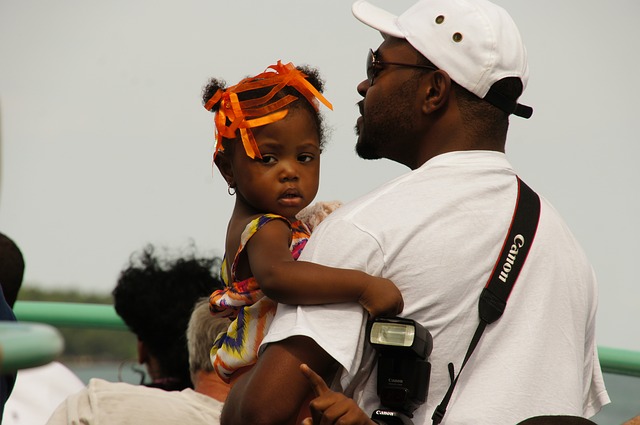(Last Updated On: January 13, 2019)
Trust is important to any healthy relationship, whether in the home, workplace, between two friends or among team members. Once broken, it is difficult to repair and without it, we become suspicious of one another. It starts early in life long before a child learns to talk and walk. When adults mistrust one another, we may need to go back and examine their childhood to see if we can put a finger on the root cause. Building trust in children and in any relationship for that matter is built from the ground up. There are no shortcuts.
I remember as a child, my dad throwing me into the air. I would spread my arms like the wings of a bird, waiting for him to catch me. I trusted that he would and my “Dada” did. These ‘flights,’ along with other games we played, drew us closer together and caused me to become very attached to him. He became my hero. We had a healthy and happy relationship because trust was a part of its foundation. Let’s briefly look at some ways of building trust in your child.
# 1 Keeping Promises
As I reflect on my childhood years, there are three key factors I saw in my father which contributed to me trusting him. First, he kept his promises.
My siblings and I looked forward to going to the beach every Saturday and whenever he told us he was taking us there, he never disappointed.
I became concerned a few years ago when I heard a friend promising her niece, to take her walking. My friend had become quite busy, so she asked the child who was just eight years old to wait a few minutes. But the child kept on nagging and eventually screamed at the aunt, “You are not going to take me anywhere. I don’t trust adults!”
I believe she reacted like this because she had become accustomed to being disappointed. One or more adults had consistently failed to keep their promises to her, hence, she became distrustful of all grown-ups.
# 2 Being Vulnerable – Using Shortcomings As Life Lessons
My father always told his children about his childhood days and how mischievous he was. He was a ‘thorn in the flesh’ to his parents and was almost placed in a correctional facility because of his defiance and hostility toward adults. Not the ideal example, but he never hid his ugly past from his children. Though it could have caused us to change our healthy perspective of him, he was open and honest about his past imperfections and this raised my admiration for him.
This life lesson taught me to become transparent early in life, but it also pushed me a step further in taking responsibility for my actions.
It hurts when I listen to children and realize how defensive they become when accused of some misdemeanor, although they’re in the wrong. I suspect this behavior is learned from adults. We must first own up to our failure and allow children to see that, whereas our actions are wrong, nothing is beyond forgiveness when we own up to our mistakes.
# 3 Telling the Truth
When parents lie to their children, or to others in the presence of their children, they open a door for mistrust to fester and grow. The children, in turn, may begin the bad practice of lying to their peers and even to the same parents.
My father always instilled in his children to be truthful. His philosophy was anytime we lied to him, he would be unable to defend us but if we practiced speaking the truth at all times, he would have our backs.
This may cause you to smile but I fondly remember when he had to appear in court for a traffic violation. He had ridden his bicycle through a road junction without stopping; (a stop sign was there before but it had blown down during a storm). Now, a policeman who had witnessed this apparent traffic incident, stopped him and asked, “Aren’t you aware that you ran a stop sign?” My father knew he had broken the law but he told him quite frankly, “If you want me to stop, make sure the appropriate sign is erected.”
My father could have downright lied to the officer by saying “No, I didn’t know I had to stop” but he chose to tell the truth, though cheekily. Later, when he faced the judge, he defended his previous statement and responded in the same manner (as he had done with the police officer), to which the openly irate judge replied, “You are a madman! Get out of my court!” He was free to go and not charged with the offense.
Conclusion
We must be good examples if we want to build trust in children. Have you ever observed how dogs behave around their owners? Even though they may not understand all of the owner’s words, yet their senses dictate that they’re in a safe environment. These animals are very trusting of their caregivers. In the same way, children may not fully understand everything said to them but they often learn to trust adults based on what is said and done to them.
I am sure that as an adult, especially if you are a parent, you would want your child to trust you. Then, keep your promises, be vulnerable and tell the truth at all times. Use the three factors which my father used with his children and I am sure you will plant a character-building value in your children. Be an adult whom children can trust!


Fantastic! I endorse this article and believe every adult especially parents and teachers should read and practice. Thanks for sharing!
Thank you for your input Merlan. I hope that your comment will be seen by parents and adults and that they will take up the challenge to read and be enlightened.